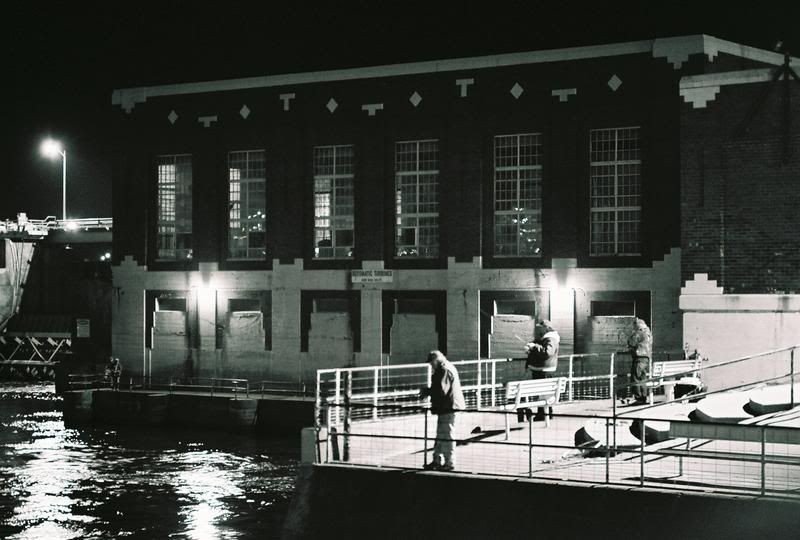Wayne R. Scott
Half fast Leica User
Here is a night shot on XP-2 that has plenty of contrasty lighting:

Wayne

Wayne

jaffa_777 said:ok, heaps of feedback. Love this forum!
So it looks like I may be metering incorrectly?
Avotious, your pics at 400 in contrasty light are excellent. Now I am even more confused, obviously I can shoot at 400, but have I overexposed or underexposed, now that is the intriguing question. Now I am not sure which one. If I am to downrate my iso, surely I will overexpose even more. Surely this will blow highlights even more? Or does it work the opposite on way on film evening up the contrast between light and dark?
